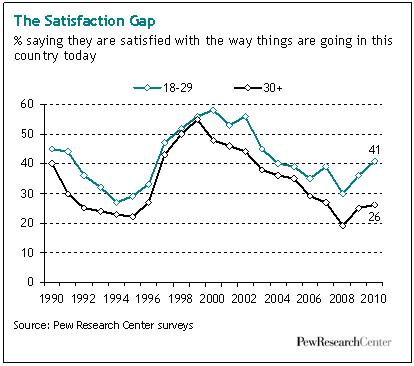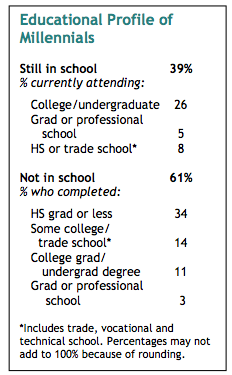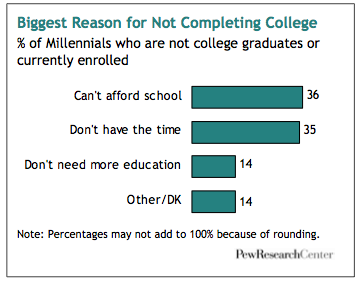March 31st, 2010
Robert J. Samuelson recently penned a column titled “Will Millennials become the chump generation?” speculating that our generation, aged 18-29, would suffer the effects of the recession and the national debt for years to come – but according to Samuelson, we’re too clueless to know it.
Reports from the Pew Research Center show that more than any other generation, we are optimistic about the future. Over 40% of Millennials surveyed are satisfied with the direction our country is headed, compared to only 26% of the over-30 crowd.
It is true that Millennials are feeling the effects of the recession the most, and we do know it. Research from Demos shows that we’re the first generation likely to be less well-off than our parents, we have high rates of unemployment, and many of us are uninsured and in debt.
But our optimism doesn’t mean we are naive. Health care reform expands our access to health insurance and education in ways that will help us and future generations achieve a higher quality of life, while reducing our overall spending.
Part of the new healthcare reform legislation is the student loan overhaul signed into law yesterday, which makes the federal government the primary administrator of student loans. By cutting commercial banks out of the student loan industry, the government will be able to channel more money into the federal Pell grant program, which offers subsidized loans to low-income college students. They will also be able to cap repayment rates at ten percent of the loan recipient’s income.
This will allow more low-income students to afford college, especially at a time when tuition rates are increasing at twice the rate of inflation. It will enable college students to graduate with manageable levels of debt.
Our optimism still may seem misplaced at a time when many Millennials find ourselves unemployed or out of the labor force, according to the Pew research center. Those of us who do find work may feel the effects of the recession in lower wages for decades to come, according to a study by Lisa Kahn at the Yale School of Management.
Despite these bleak statistics for college graduates, students without a college degree are hit the hardest by the recession. It is therefore encouraging to see such a high percentage of Millenials – 63% – saying they plan to get a college degree, or already have one. We know that higher educational attainment draws economic development and raises low-income families out of poverty.
The student loan overhaul may not make college any cheaper, but it will allow more low-income students to finance higher education. It will enable more students to avoid crippling post-grad debt. To this Millennial, at least, that looks like a pretty great reason to be optimistic about the future.
Posted by Robyn Hyden


